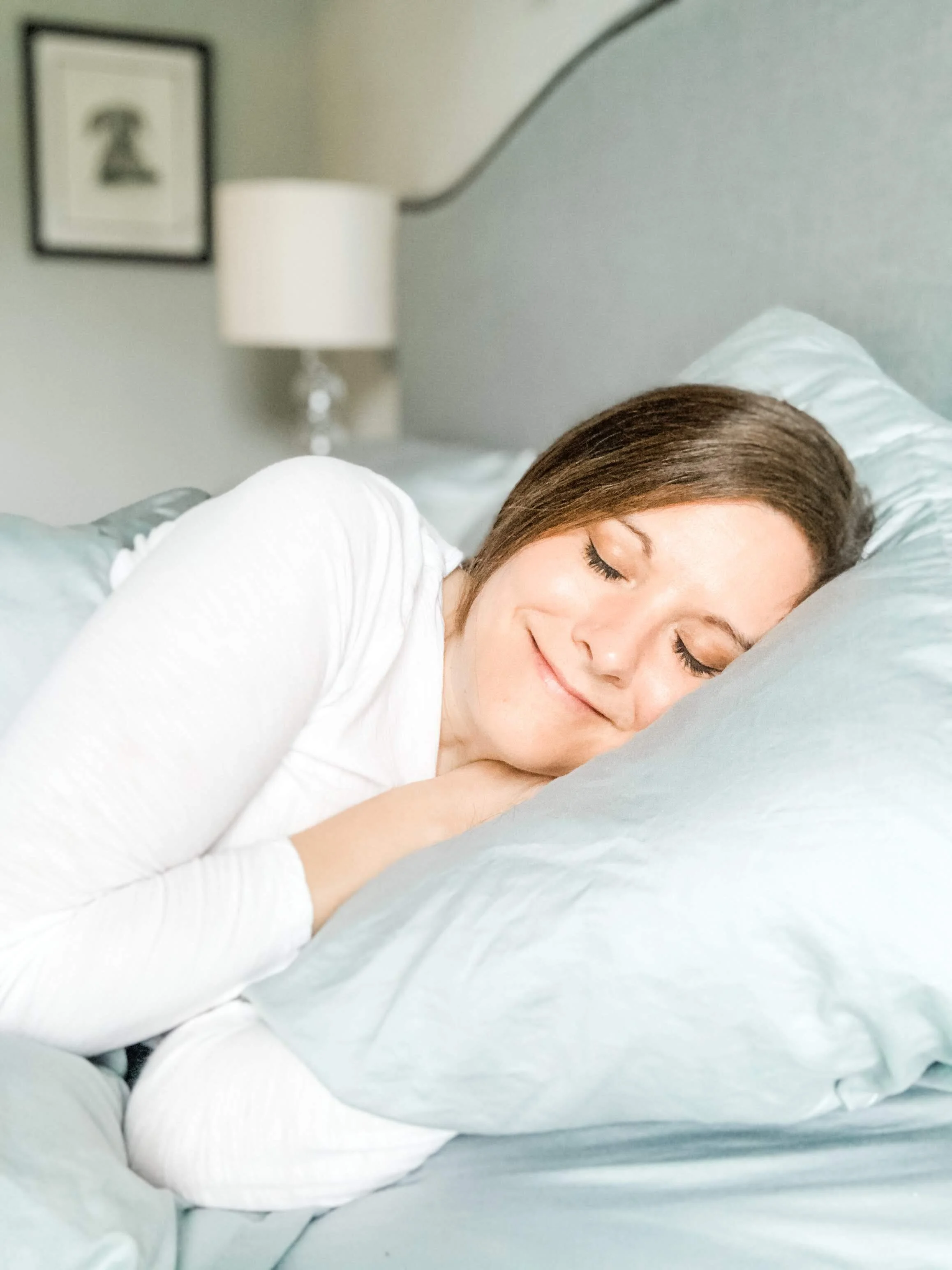The Unexpected Reason You're Not Sleeping Well During Coronavirus Quarantine and What To Do About It
It’s happening.
I’m staring at the ceiling at 4 a.m.
And I know I’m not the only one.
Since the pandemic, people are reading my strategies for getting a good night’s sleep more than any other post.
So why aren’t people sleeping? And what can we do about it?
The obvious answer is stress. Our minds are processing the massive amounts of change.
But there’s another shift that affects our sleep.
Our daily routines have been shredded.
My days fly by with none of the usual events to bookend a work day. There’s no daily commute. No walking to and from the parking deck. No scheduled lunch time.
We’re caught in an endless sea of time. The only routine we have is the one that we make.
For me, everything has shifted. I’m in bed 30 to 45 minutes longer every morning. I start working right away and get so caught up in it that I don’t stop to eat my breakfast smoothie until an hour later than usual. Then lunch, dinner and bedtime are all pushed back too.
Throw some stress into the day and all of my best intentions to stick to a schedule are gone.
You know how this happens, right? You get that email that says big financial cutbacks are on the horizon at work. Your mind goes down the rabbit hole wondering what will happen with your job. Are you safe? What’s your Plan B?
The result is that my sleeping, eating and exercise routines are off.
And it turns out these routines are crucial for the wellbeing of your gut microbiome.
Let’s back up for a second. What does your gut have to do with sleep?
The bacteria in your gut help regulate sleep hormones like serotonin and melatonin. Over 80% of serotonin is housed in your gut. It’s a precursor to melatonin. And your gut contains at least 400 times more melatonin than your brain.
Your gut microbes, circadian rhythms & schedules
Your gut microbes have their own circadian rhythms, just like your internal body clock does. But instead of being regulated by light, they’re affected by three things.
What you eat, when you eat and your sleep-wake cycle.
Ding Ding Ding.
Changes to meal and sleep schedules change the circadian rhythms in your gut microbiome.
So what do you do about it?
How to heal your gut’s circadian rhythms
1.Get your eating and sleep back on a schedule. I know this sounds easier than it actually is. Work on re-establishing the same eating and sleeping routine 7 days a week. Set breakfast, lunch and dinner alarms on your phone to remind you when it’s time to get up and prepare your food and eat. Set alarms for bedtime and wake time too.
2. Eat more plants. Veggies are a mix of antioxidants, anti-inflammatories, nutrients and prebiotics that feed the healthy mix of bacteria in the gut and strengthen the gut wall. They’re essential for gut health. To boost how many veggies you eat every day, focus on the six Ss: smoothies, salads, sprouts, spices & herbs, sauerkraut, and sheet pan roasted veggies.
3. Stop eating 2-3 hours before bed. The National Sleep Foundation says it best not to eat within a few hours of sleep. If sleep time is prime time for your lymphatic system to detox, it makes sense to finish digesting before getting in bed. And you’re less likely to have indigestion when you lay down.
4. Get your heart rate up every day. Moderate cardio exercise boosts your gut microbes and enriches microbe diversity. Before the pandemic, I walked to and from work and I’d get 150 minutes of moderate cardio a week. Now that I don’t have those walks, I’m not winning any activity records. One day I logged a skimpy 206 steps all day long. Now I’m doubling down on walking at least 30 minutes a day.
5. Replace your slippers with tennis shoes. All the little bits of movement and exertion that occur during your day are called non-exercise activity thermogenesis or NEAT. Taking the stairs, walking to a meeting, going down the hall to the bathroom all take energy. So when your daily commute involves walking from the couch to your desk, your NEAT goes way down. Too much sedentary time is associated with insomnia and sleep problems. My goal is to wear my indoor tennis shoes for 8 hours a day. By doing so, I’m much more likely to stand to work, to pace when I’m reading emails on my phone and to walk stairs.
6. Find the one thing that gets you activated. If I wake up between 6 and 6:30 a.m. and put on workout clothes and tennis shoes right away, I’m more active, productive and focused all day long. Waking up early and dressing right starts a ripple effect of positive activity in my day. If I set my focus on doing that one thing, everything else falls into line in my day.
Sleep in disrepair
Our sleep is a wreck because our daily routines are in shambles.
Pandemic stress consumes our minds and being stringent about a schedule is the last thing we want to focus on right now.
But meal and sleep schedules that bounce around throw off the circadian rhythm of the gut microbiome, making it hard to get a decent 8 hours a night.
Since sleep is the foundation of a good day for an HSP, keeping a schedule is worth it.
Decide today to commit to getting back on schedule.
Your midnight hours will thank you.
Do you struggle with low energy, poor focus & anxiety as a Highly Sensitive Person (HSP)?
Grab this free guide to learn 12 habits that will dramatically improve how you feel on a daily basis.



